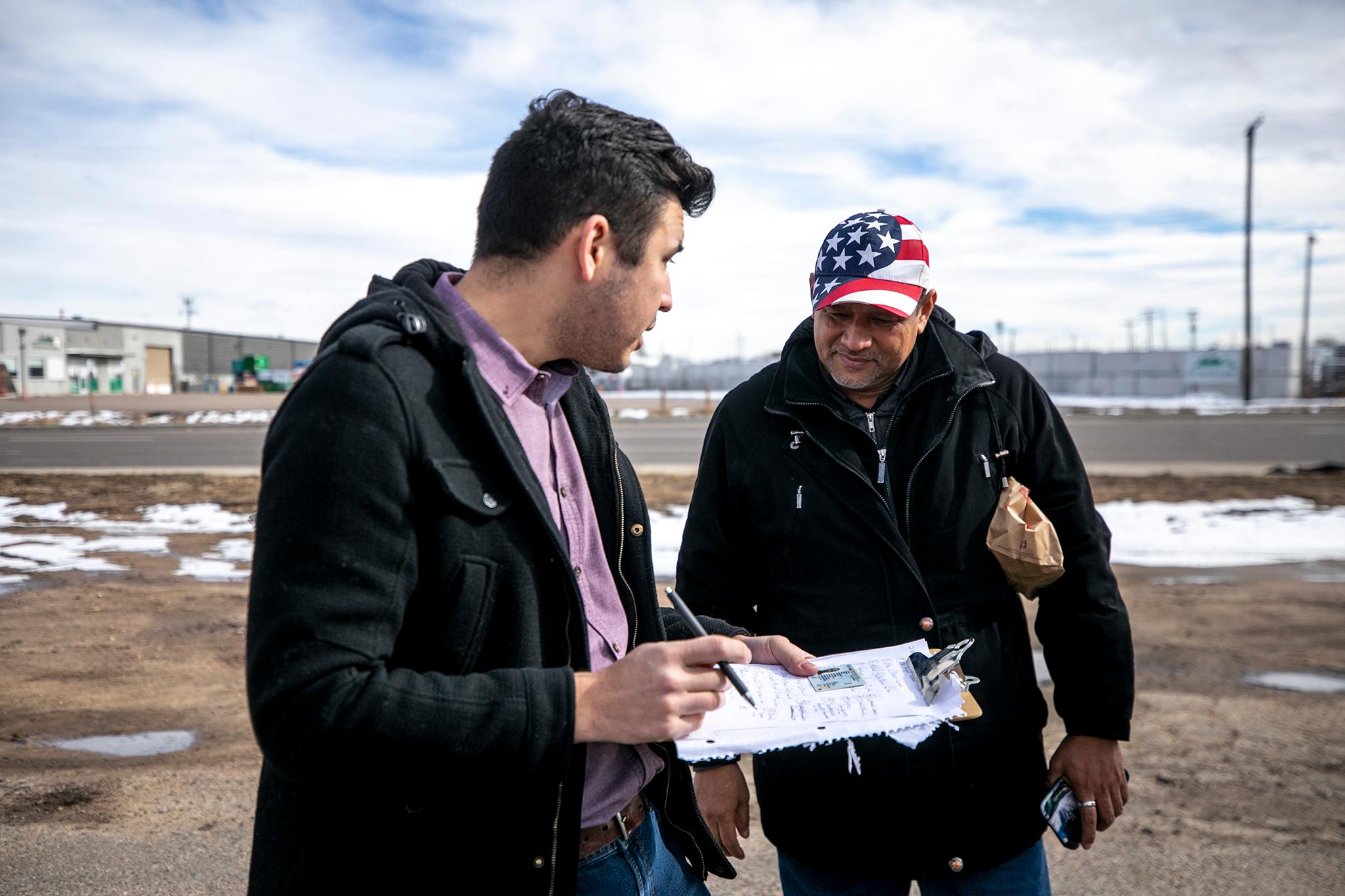Housing assistance and job training are the major focuses of the city’s new immigrant response plan.
Mayor Mike Johnston announced Wednesday that the city is shifting its new immigrant response from emergency sheltering measures to a focus on long-term housing and job security, for those who choose to stay.
The Denver Asylum Seeker Program is a six-month program that provides new immigrants with housing, rent and food assistance and job training. The program will start with those currently in the shelter system.
Johnston said in the press conference that the six-month timeframe should coincide with new immigrants receiving work authorizations. With the job training they received and the authorizations, the idea is that new immigrants will have time to become self-sufficient.
The move, Johnston said, comes partially because of cost.
If the city continued the emergency shelter method, it would cost the city about $180 million in 2024. Now, it will cost about $89.9 million.
But also the change is because of who is currently left in the sheltering system and how folks are now arriving.
Initially new immigrants who arrived last year received temporary protected status, or TPS. That allowed the group to receive work authorization quickly.
Some new immigrants who arrived in the fall filled out CBP One application through the Customs and Border Protection Agency. Those folks are paroled into the country and become eligible for work authorization as long as that parole status is valid.
However, Johnston said, people arriving currently or who are still in the shelters don’t fit into either category and need different solutions.
TPS is only for Venezuelans who were living in the United States before July 31, 2023. While CBP One applications can only be filled out before new immigrants arrive in the United States. If they don’t wait to fill out an application at the border, which city officials said could take three weeks, or didn’t take that step to begin with, they aren’t eligible.
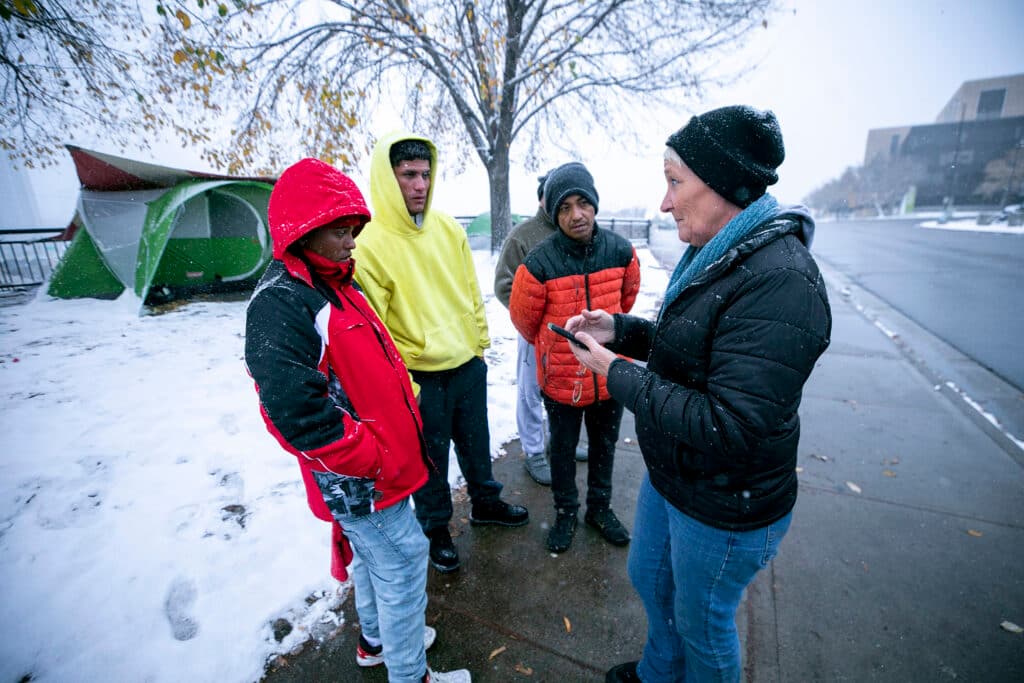
There are about 800 people in the remaining two newcomer shelters, who Johnston said are now considered asylum seekers. With that title, new immigrants are filing tedious and expensive paperwork and are eventually given court dates to either receive or be denied asylum. Then, they would qualify for work authorizations.
Those court dates start in 2030.
“Until that court date, they cannot work. This is why we have folks in the current system for whom a 14 or 42 day stay no longer helps and no longer works,” Johnston said.
The first step is to apply for asylum.
With Denver’s new asylum program, the goal is to take about 1,000 new immigrants, starting with people still in the shelter, and start the asylum seeking process.
The program will assist new immigrants in the application process, which Johnston said could take about 20 hours of legal work. About six months after applications are completed, new immigrants are eligible for work authorization.
With the help of nonprofits, folks will be transitioned into housing and provided with six months of rent and food assistance.
Yoli Casas, executive director of ViVe Wellness, said organizations are placing new immigrants into housing in normal fashion, filling out applications, completing background checks and providing proof of income or assistance.
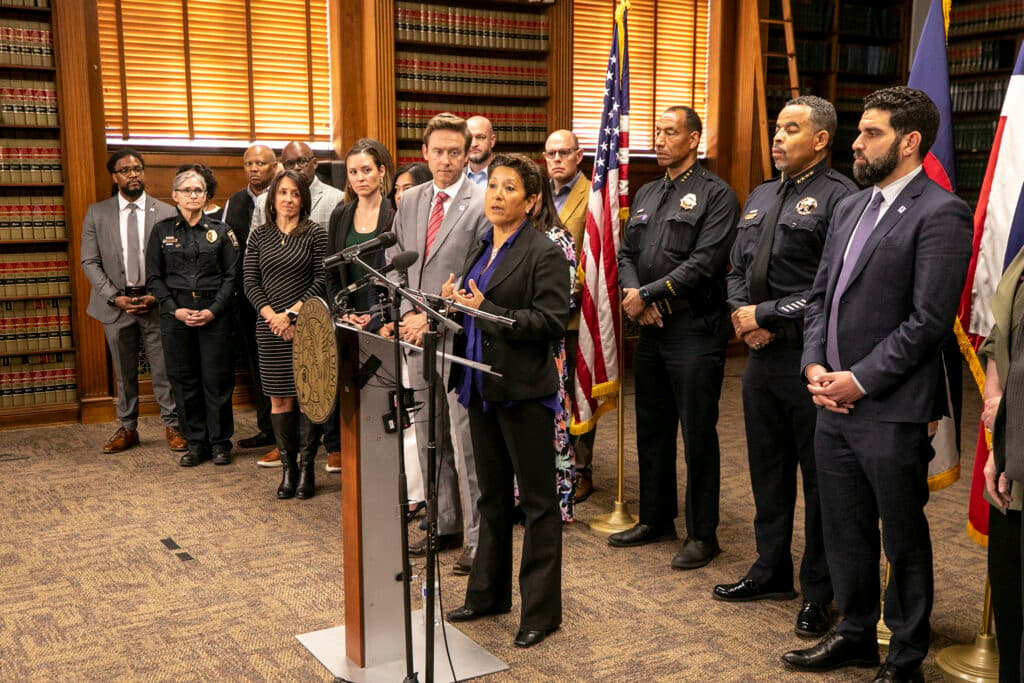
She added that some Denver landlords have also stepped forward offering rental units and some at lower costs.
The next step in the program is job training.
Through the Department of Economic and Development, new immigrants would be provided with workforce training.
Johnston said depending on who enters the program, the city will determine what skills new immigrants already possess or what they’re interested in learning. Sectors the city has already reached out to include construction, logistics, healthcare, childcare. Essentially, groups who need more employees.
The program will also offer English classes, digital literacy, financial literacy and various certifications such as OSHA training and first aid. Then new immigrants would enter into what Johnston called unpaid internships.
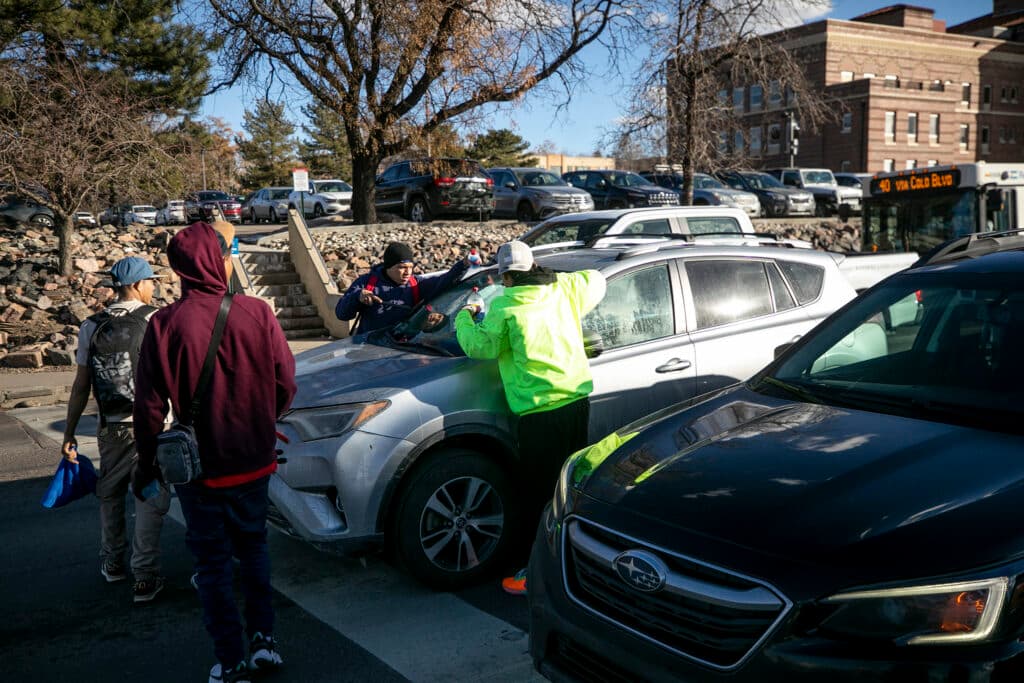
“Our goal is to ensure that everybody who enters the program has some of that basic training that will allow them to be work ready,” Johnston said. “No one is receiving wages at all during this workforce training. No one is compensated in any way. What we do know is they can get the training to be able to enter jobs in high demand industries.”
Denver's asylum program has a cap of about 1,000 people. If people arrive after April 10 and there isn’t space for them in the program, they will be placed into congregate shelter for 24 to 72 hours. They’ll be directed to outside services, connected with relatives in Denver if they have them or given the opportunity to move on to a new city.
This portion of the program is what worries advocates.
Several nonprofits, including The American Friends Service Committee, said ending the short-term sheltering will lead to homelessness and disrupt the system that was painstakingly implemented by nonprofits. It’ll also be too expensive for the city to reverse course if another high wave of new immigrants occurs, they say.
“The new policy will undermine the effort and successes of newcomers, nonprofits and mutual aid networks and create more housing scarcity in the newcomer community,” wrote the AFSC. “Instead of staying the course and reserving those funds for when there is an uptick in arriving newcomers -- the Johnston administration reversed course abandoning newcomer emergency sheltering entirely. This stand down will dismantle an entire infrastructure of welcome that cannot rapidly be scaled back up.”
During the press conference, Johnston said next steps in assisting newer arrivals depends on what space is left in the program. He said case management will still be available for people who enter in the shelter system, but the city expects more will move on to other cities, since they will know about the shelter changes.
During the press conference, Johnston referred frequently to the assistance nonprofits would be providing to the effort but it’s unclear how the nonprofits will be compensated for the work or who ultimately will be paying for the work.
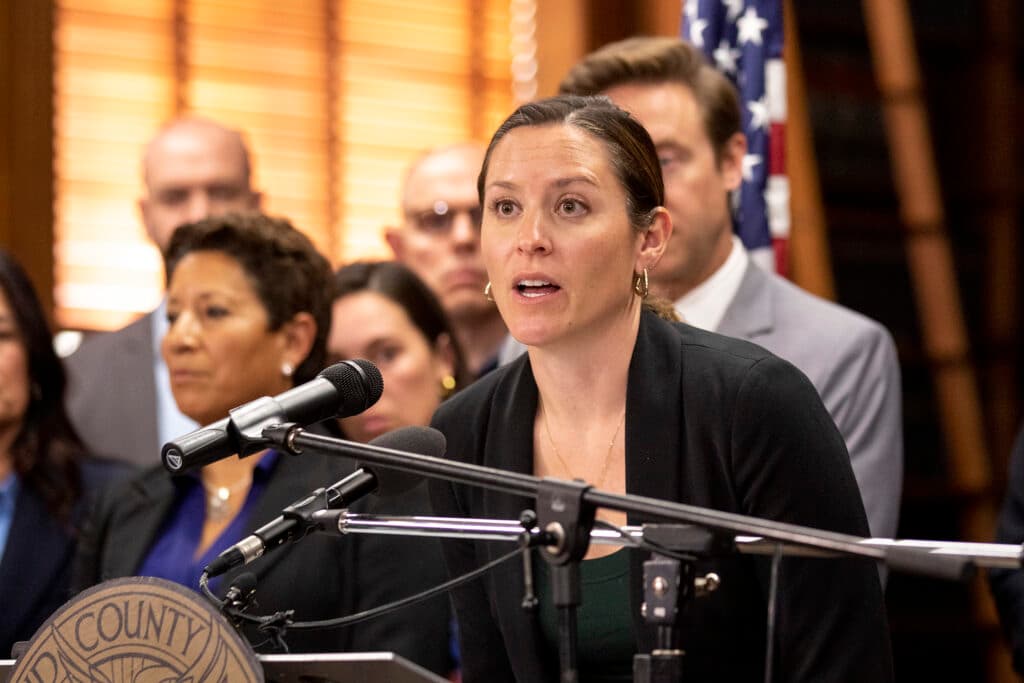
Sarah Plastino, head of the Newcomer Program for the Department of Denver Human Services, said food assistance will come in the form of monthly debit cards. The amount of money on the card will be determined by family size and personal funds. They will also be given out by an unnamed nonprofit.
In the past, mini grants of $10,000 were awarded to smaller non-contracted organizations by the city to also assist in the effort, including the Village Exchange Center and Focus Points Family Resource Center.
Larger nonprofits, like ViVe Wellness, have contracts with the city to provide services. If nonprofits aren’t contracted, it’s unclear how the city will be helping them.
Requests for clarification on funding nonprofits weren’t immediately answered.

